You and Me

Cast & Crew
Fritz Lang
Sylvia Sidney
George Raft
Barton Maclane
Harry Carey
Roscoe Karns
Photos & Videos
Film Details
Technical Specs

Synopsis
Joe Dennis and Helen, both ex-convicts on parole, work in the department store of Mr. Morris, who hires former inmates to help them assimilate to civilian life. Joe, whose parole has just ended, falls in love with Helen but, unaware that she too has a prison record, is about to leave for California because he doesn't think he is good enough for her. At the last moment, she offers to marry him, even though parole rules strictly forbid it. Helen keeps both her marriage and her parole a secret by telling her landlady and Joe that Mr. Morris doesn't allow his employees to marry within the company. When Joe learns another couple at the store is married, then finds a bundle of Helen's private letters but is unaware that it contains her parole card, he becomes suspicious that she is having an affair. Meanwhile, Helen's parole officer, Mr. Dayton, visits and warns her against getting involved with Joe, who was once a gun-toting criminal. Joe comes home just as Dayton is leaving and accuses Helen of having secrets, but she assures him she has none. On Christmas Eve, Joe attends a meeting of his old gang, all of whom now work for Morris, except Mickey, who wants the gang to help him rob the department store. When Joe refuses to be part of the heist, the men tell him Helen is on parole. Joe goes home and angrily tells Helen he knows, then walks out. Meanwhile, Mickey has paid a lawyer to protect him if the heist fails, leaving the gang to take the blame for the crime. Gimpy, one of the gang who is loyal to Morris, tells Helen about the heist and she warns Morris. The night of the robbery, Helen, Morris and some guards greet the thieves at the store. Morris gives them another chance by refusing to call the police and ordering them to report for work the next morning. Mickey is arrested, and Helen then explains to the men in mathematical terms why crime doesn't pay, figuring they each will make only $133.33 from a $30,000 job. The men thank Helen and leave, reformed, but Joe is enraged she played "stool pigeon" and deserts her, unaware she is pregnant. She completes the term of her pregnancy in a boardinghouse, while Joe and the men search for her for months. Finally, Gimpy locates her in a hospital, and Joe and the gang come to see the new baby. Joe and Helen then marry again, legally, with the gang as bridesmaids.

Director

Fritz Lang
Cast

Sylvia Sidney

George Raft
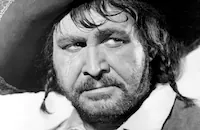
Barton Maclane
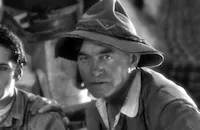
Harry Carey
Roscoe Karns
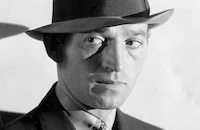
George E. Stone

Warren Hymer

Robert Cummings
Adrian Morris
Roger Gray

Cecil Cunningham
Vera Gordon
Egon Brecher
Willard Robertson

Guinn Williams
Bernadene Hayes
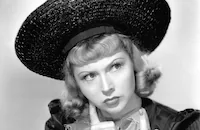
Joyce Compton
Carol Paige
Paul Newlan
Hal K. Dawson
Matt Mchugh
Margaret Randall
Jack Mulhall
Sam Ash

William B. Davidson
Harlan Briggs
Blanca Vischer
Herta Lynd
Jimmie Dundee
Terry Ray
Sheila Darcy
Ruth Rogers
Julia Faye
Phillip Warren
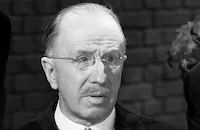
Arthur Hoyt
Joe Gray
Jack Pennick
Kit Guard

Fern Emmett
Max Barwyn
James Mcnamara
Oscar G. Hendrian
Edward J. Pawley
Harry Tenbrook
Ernie Adams

Greta Granstedt
Helaine Moler
Marie Burton
Lola Jensen
Cheryl Walker
Yvonne Duval
Dorothy Dayton
Carol Parker

Juanita Quigley
Paula De Cardo
Harriette Haddon
Gwen Kenyon
Louise Seidel
Barbara Salisbury
Marion Weldon
Barbara Jackson
John Mccafferty
Jane Dewey
Joyce Mathews
Ethel Clayton
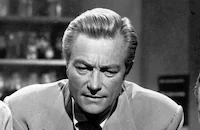
Richard Denning
Archie Twitchell
Jack Hubbard
Ray Middleton
Crew
Glenn Alden
Melvin Ballarine
Ted Bonnett
Phil Boutelje
Phil Boutelje
Eugene Busch
Joe Caplan
Sam Comer
Sam Coslow
Ray Cossar
Emery Darcy
Jack Deconde
Kenneth Deland
Hans Dreier
Ernst Fegté
A. E. Freudeman
Richard Harlan
Ed. Herring
Walter Hoffman
R. L. Johnston
Norman Krasna
Roy Krueger
Charles Lang Jr.
Fritz Lang
Fritz Lang
Fred Leahy
Helen Learley
Lionel Linden
Harry Lindgren
Ken Lobben
Boris Morros
Ralph Nelson
Wallace Nogle
Walter Oberst
Ted Powell
Robert Rhea
Jack Sager
Harry Scott
Edna Shotwell
Henry Shuster
Virginia Van Upp
Paul Weatherwax
Kurt Weill
Sam K. Wineland
Adolph Zukor

Photo Collections
Film Details
Technical Specs

Articles
You and Me -
The project was born from an original script by Norman Krasna, who specialized in romantic comedies and witty dialogue but had also written the hard-hitting lynch-mob drama Fury (1936), Lang's first American movie. The prolific screenwriter was set to make the film his directorial debut with George Raft and Carole Lombard in the lead roles until Raft objected to a novice at the helm. Paramount revived it with Sylvia Sidney opposite Raft and Richard Thorpe assigned to direct. This time it was Sidney who objected and she suggested that Fritz Lang, who had directed her in Fury and You Only Live Once (1937), take over. Lang was already getting a reputation for his demanding ways and perfectionism but he had a good relationship with Sidney and the studio was eager to work with the actress, so they agreed.
Lang immediately began reworking the script when he joined the production in 1937, with the blessing of Krasna, with whom he maintained a friendship and a correspondence. "Go get 'em Fritz, you're one of the very few who can," wrote Krasna in one letter. "[T]here's no question that Brecht was most responsible for You and Me," Lang told Peter Bogdanovich in 1965, referring to German playwright Bertolt Brecht. "I wanted to make a picture that teaches something in an entertaining way, with songs." He brought in composer Kurt Weill, Brecht's collaborator on The Threepenny Opera and other plays, to create a different kind of musical. In one scene, when a group of ex-cons get together, their remembrance of life in prison is expressed in a mix of rapping on tables and clinking on glasses, call-and-response dialogue, and rhythmic chants, while flashbacks of life in prison play across the screen.
Work on the script proceeded slowly. Krasna left the project and Lang worked on the script with screenwriters Virginia Van Upp and Jack Moffitt, divvying up scenes between them and meeting with one in the morning and another in the afternoon, while working out songs with Weill before the screenplay was complete, which frustrated the composer. Preproduction dragged on so long that Sidney took a role on Broadway and Weill left Hollywood for New York to work on other projects.
Production finally began in January 1938, with Oscar-winning cinematographer Charles Lang Jr. behind the camera (he won for A Farewell to Arms from 1932 and racked up a record 18 Academy Award nominations over a nearly 50-year career) and veteran actor Harry Carey in the important role as the paternal department store owner who takes a chance on ex-convicts for his sales staff. Barton MacLane was cast as the mobster who tries to lure the former crooks back into a life of crime. Character actors Roscoe Karns, Warren Hymer, and George E. Stone are among the familiar faces filling out the cast of ex-cons along with a young Robert Cummings, a fresh face soon to become a leading man in his own right in such films as The Devil and Miss Jones (1941) and Alfred Hitchcock's Saboteur (1942).
Lang's perfectionism slowed the production schedule and he forced his cast and crew to work overtime (sometimes to midnight) and weekends. He clashed with Raft and even fellow German émigré Kurt Weill bristled at Lang's arrogance and demanding manner. "Nobody in the whole world is as important as he imagines himself to be," the composer wrote his wife, actress Lotte Lenya. "I completely understand why he is so hated everywhere." Principle photography ended in March, seven days behind schedule, and post-production went into overdrive to meet a June release date. Weill's music was worked over by studio composer Boris Morros and lyricist Sam Coslow, songs were overdubbed, others were cut.
Lang's idiosyncratic approach was not lost on the critics. "Confronted with a slightly Runyonesque crime story by Norman Krasna, [Lang] has chosen to intersperse its open-faced narrative with a number of unconventional stylistic asides--chants, sepulchral voices, montages of sound and imagery," wrote The New York Times film critic Frank S. Nugent. Variety described it as "a sort of cinematic Mercury Theatre, by way of Marc Blitzstein--Orson Welles, with European flavoring, also." But for all the ambition, You and Me was a commercial flop and a critical disappointment. In his 1965 interview with Bogdanovich, Lang called it "an unfortunate affair from the beginning--you know, some things are just jinxed," and in a later interview confessed that "It was--I think deservedly--my first real flop."
But it's also an inventive picture that mixes social commentary, romantic comedy, and characters reminiscent of Damon Runyon with sophisticated storytelling techniques. It was Lang's version of a Bertolt Brecht "Lehrstuck--a play that teaches" as a Hollywood entertainment and it remains one of the most unusual films in his career.
Sources:
Fritz Lang in America, Peter Bogdanovich. Studio Vista, 1967.
Fritz Lang: The Nature of the Beast, Patrick McGilligan. Faber and Faber, 1997.
Fritz Lang, Lotte Eisner. Secker and Warbug, 1976.
George Raft: The Man Who Would be Bogart, Stone Wallace. BearManor Media, 2008.
"The Screen in Review," Frank S. Nugent. The New York Times, June 2, 1938.
"You and Me," unsigned review. Variety, June 8, 1938.
AFI Catalog of Feature Films
IMDb
by Sean Axmaker

You and Me -
Quotes
Trivia
Notes
The working title of this film was Wonderful. According to a Los Angeles Times news item from August 1936, Norman Krasna, who wrote the original story, signed a contract to direct the film, which would have been his first such assignment. At the time, George Raft and Helen Burgess were to have the lead roles, according to Los Angeles Times. A modern source states that Raft and Carole Lombard were to star in the film when Krasna was scheduled to direct, but when they objected to the novice director, Raft was suspended and the project shelved. Modern sources further state that Richard Wallace was to direct after Raft and Sylvia Sidney were assigned to the film, but that Sidney objected and asked if Fritz Lang, with whom she had worked previously on Fury, which was also written by Krasna, and You Only Live Once (see below) could direct. According to information in the Fritz Lang Papers at the AFI Library, Lang began to work on the project on May 12, 1937. The Lang Papers contain correspondence between Krasna and Lang from December 1937 in which they discuss the casting of the roles of the Jewish apartment owners, "Mr. and Mrs. Levine." Krasna wrote that when the film had been in the casting stage, he interviewed and accepted Vera Gordon in the role of "Mrs. Levine." Lang, who earlier in the month had requested from a studio official a copy of the 1920 film Humoresque to view the performance of Gordon (who played a leading role as a Jewish mother), wholeheartedly agreed with Krasna's suggestion that Gordon be given the role. In the letters, Krasna acknowledged that the script had been "radically altered" after Lang took over as director and exhorted Lang to "Go get 'em Fritz, you're one of the very few who can."
Lang, in a modern interview, noted the influence of German poet and playwright Bertolt Brecht in his own conception of the film. Lang pointed out that Brecht invented "Lehrstück-a play that teaches" and stated that with this film, "I wanted to make a picture that teaches something in an entertaining way, with songs." This marked the first Hollywood film of German composer Kurt Weill, who had collaborated with Brecht on a number of plays. According to information in the Lang Papers, during production early in February 1938, Paramount allowed Weill to return to New York "to fulfill his personal obligations," with the agreement that he would return to Hollywood to work on the film after shooting was completed. Although in the modern interview, Lang states that the "Knocking Song," in which the ex-convicts rhythmically pound and speak a song about their life in prision, was written by musical director Boris Morros, all references to the song in the Lang Papers indicate that the music was written by Weill.
The musical numbers in this film were unorthodoxly presented as compared with other American films at the time, and showed the influence of Brecht. Following the opening credits, the film begins with a Weill-Coslow composition, "Song of the Cash Register," in which a man's baritone voice ("half singing-half speaking," as indicated in Lang's notes in the Lang Papers) is heard on the soundtrack, while a montage of images illustrating the song's theme ("You cannot get something for nothing, and only a chump would try it; whatever you see that you really want, you can have-provided you buy it!)" Later, when a "torch singer" at a nightclub sings "The Right Guy for Me," the scene dissolves into a series of shots in a waterfront setting that has no connection with the plot of the film. The scene is identified in the Lang Papers as "A Hop-Head's Vision of a Waterfront Dive" and the description of the scene in the script begins, "In the shadowy light of the stylized ([Josef] Von Sternberg) photography, it has an eerie feeling." Finally, in the "Knocking Song" referred to above, as the ex-convicts rap out a rhythm and tell about an incident in prison, the accompanying pictures show images of the prison in an impressionistic manner.
Two additional songs were written for the film but were not finally included. "Song of the Lie," with music by Weill and lyrics by John Burke, was to have been sung by Marsha Hunt, but was cut after the first preview, according to the Lang Papers. The song to have been heard on the soundtrack first, as the voice of "Helen's" conscience, during the subway ride after "Helen" and "Joe" plan to marry, which warns her "you better be sure what you're doing, for love can't exist on a lie." Later, the song was to have been reprised when "Joe" questions "Helen" after "Dayton" visits her in their apartment. "The Kind of People Who Sing Lullabies" was to have taken place when "Joe" makes "Helen" confess that she had been a convict, but a note in the Lang Papers written by a studio official before production began stated, "As Miss Sidney does not wish to do any singing in the picture it is very likely that this scene will be eliminated."
According to information in the Lang Papers, Lloyd Nolan was originally cast for the role of "Mickey," but was replaced by Barton MacLane when another unit at Paramount requested him. The following actors were tested for roles but were ultimately not used in the final film: Nat Carr and William Strauss for the role of "Mr. Levine"; William Mancell for "Patsy"; Mack Gray for "Knucks"; and Ferika Boros for "Mrs. Levine." Information in the Lang Papers indicates that although one of the regulations listed on "Helen's" Parole Board card prohibited marriage for parolees, in actual fact, in New York, where the story was to have taken place, parolees were not prohibited from marrying. In the final film, the city is unidentified. The cost of the film, according to the Lang Papers, was $789,000. The Lang Papers contain sheet music for the song "You and Me," music by Frederick Hollander, lyrics by Ralph Freed. While there was no song of this title sung in the film, the melody May have been used during the credits.
According to PCA material in the Lang Papers, the name of the character played by Raft was changed from "Joe Damati" to "Joe Dennis" following a comment by a PCA official that identifying the character as an Italian American might result in the film being banned in Italy. Also, PCA Director Joseph Breen originally objected to having the marriage of the main characters declared invalid by the parole agent, which would have made their child illegitimate, but after a meeting with Paramount officials, Breen reconsidered following an agreement to omit a reference to the baby and to rephrase dialogue relating to the second marriage.
Reviews, while commenting on the distinctiveness of the film, were mixed. Variety, while stating that Lang "misses out in this one," remarked concerning the film's possible influences: "...there's quite a bit of the René Clair in You and Me. Lang tries to blend dramatic music with melodramatic action more than heretofore. It's a sort of cinematic Mercury Theatre, by way of Marc Blitzstein-Orson Welles, with European flavoring, also. However, it's rather confusing." Frank S. Nugent of New York Times wrote, "Fritz Lang, one of the few practicing impressionists in Hollywood, has attempted to combine boy-meets-girl and the Greek chorus with rather curious result....Confronted with a slightly Runyonesque crime story by Norman Krasna, he has chosen to intersperse its open-faced narrative with a number of unconventional stylistic asides-chants, sepulchral voices, montages of sound and imagery....It is quite obvious that Mr. Lang...has been stirred by some of the newer manifestations on Broadway-the style of the Living Newspaper, the Orson Welles Julius Caesar, the scenery-less Our Town. He has been trying to break with the Hollywood formula, to bring into closer unity the still-disjointed sound and picture tracks of the talking screen." However, Nugent criticized the final effect of the film, calling it "remarkably bad."














